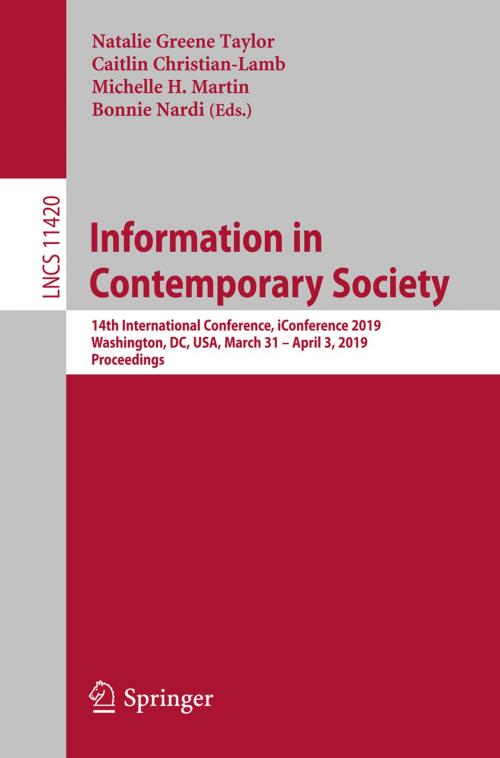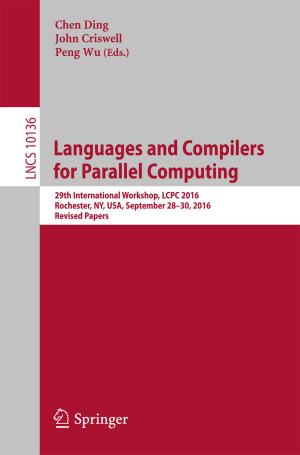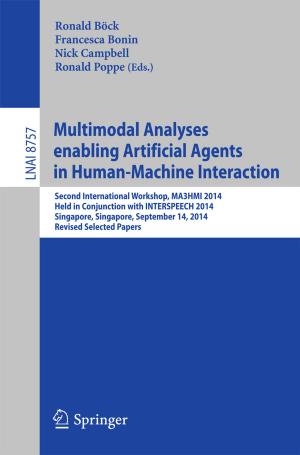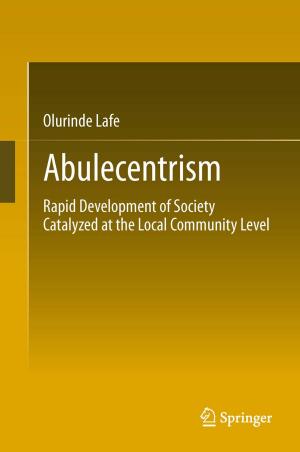Information in Contemporary Society
14th International Conference, iConference 2019, Washington, DC, USA, March 31–April 3, 2019, Proceedings
Nonfiction, Computers, Database Management, Information Storage & Retrievel, Advanced Computing, Information Technology, General Computing| Author: | ISBN: | 9783030157425 | |
| Publisher: | Springer International Publishing | Publication: | March 12, 2019 |
| Imprint: | Springer | Language: | English |
| Author: | |
| ISBN: | 9783030157425 |
| Publisher: | Springer International Publishing |
| Publication: | March 12, 2019 |
| Imprint: | Springer |
| Language: | English |
This book constitutes the proceedings of the 14th International Conference on Information in Contemporary Society, iConference 2019, held in Washington, DC, USA, in March/April 2019.
The 44 full papers and 33 short papers presented in this volume were carefully reviewed and selected from 133 submitted full papers and 88 submitted short papers. The papers are organized in the following topical sections: Scientific work and data practices; methodological concerns in (big) data research; concerns about “smart” interactions and privacy; identity questions in online communities; measuring and tracking scientific literature; limits and affordances of automation; collecting data about vulnerable populations; supporting communities through public libraries and infrastructure; information behaviors in academic environments; data-driven storytelling and modeling; online activism; digital libraries, curation and preservation; social-media text mining and sentiment analysis; data and information in the public sphere; engaging with multi-media content; understanding online behaviors and experiences; algorithms at work; innovation and professionalization in technology communities; information behaviors on Twitter; data mining and NLP; informing technology design through offline experiences; digital tools for health management; environmental and visual literacy; and addressing social problems in iSchool research.
This book constitutes the proceedings of the 14th International Conference on Information in Contemporary Society, iConference 2019, held in Washington, DC, USA, in March/April 2019.
The 44 full papers and 33 short papers presented in this volume were carefully reviewed and selected from 133 submitted full papers and 88 submitted short papers. The papers are organized in the following topical sections: Scientific work and data practices; methodological concerns in (big) data research; concerns about “smart” interactions and privacy; identity questions in online communities; measuring and tracking scientific literature; limits and affordances of automation; collecting data about vulnerable populations; supporting communities through public libraries and infrastructure; information behaviors in academic environments; data-driven storytelling and modeling; online activism; digital libraries, curation and preservation; social-media text mining and sentiment analysis; data and information in the public sphere; engaging with multi-media content; understanding online behaviors and experiences; algorithms at work; innovation and professionalization in technology communities; information behaviors on Twitter; data mining and NLP; informing technology design through offline experiences; digital tools for health management; environmental and visual literacy; and addressing social problems in iSchool research.















